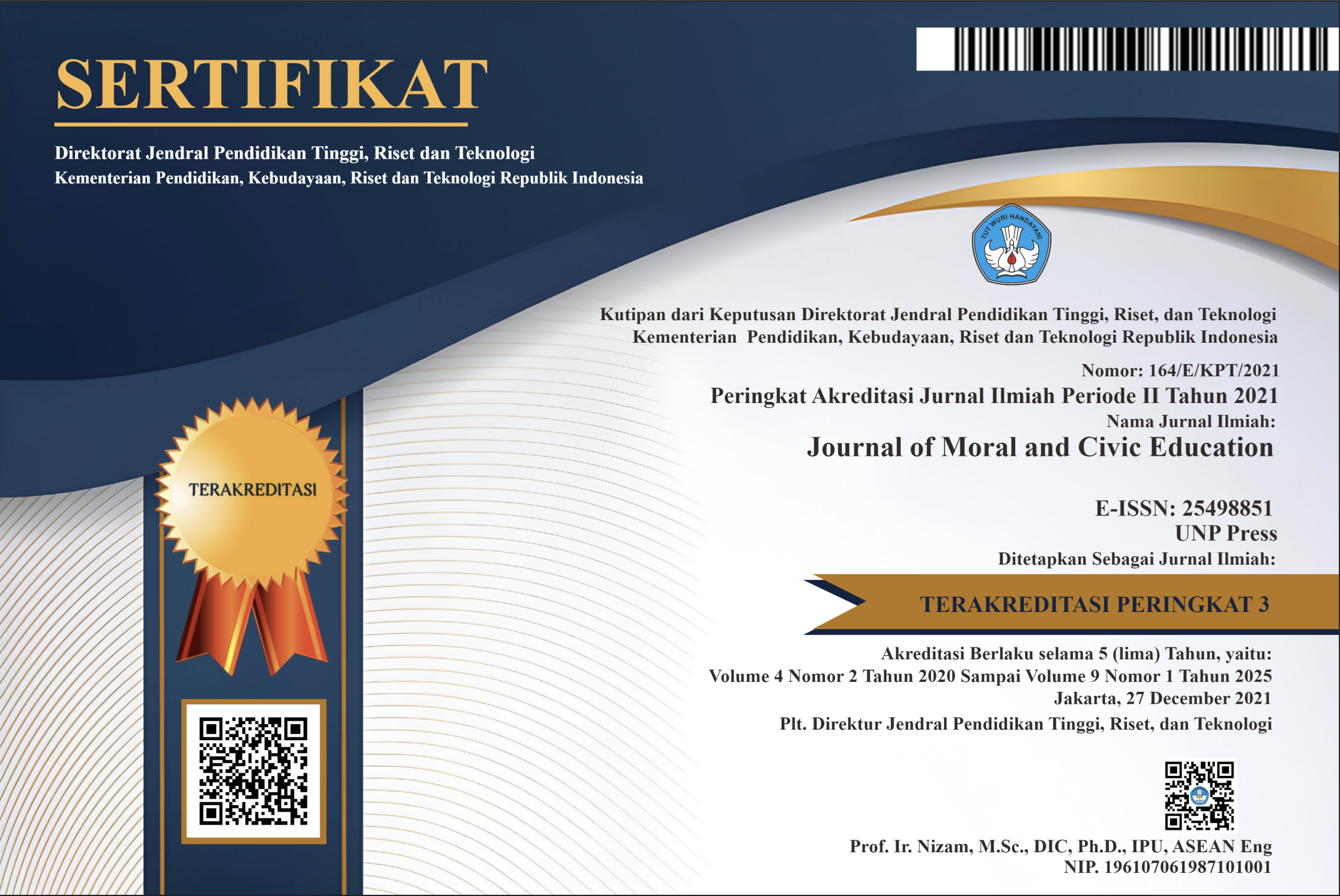A Systematic Literature Review on Local Wisdom-Based Citizenship Education Learning
Abstract
This article presents a systematic literature review analyzing the existing research studies on local wisdom-based citizenship education learning. Local wisdom refers to the knowledge, values, and practices developed by a specific community or culture over generations. Citizenship education learning aims to foster active and responsible citizens who contribute to the betterment of their society. By incorporating local wisdom into citizenship education, educators can enhance students' understanding and appreciation of their local cultural heritage, environmental sustainability, and community engagement. The review focuses on identifying and synthesizing key findings, methodologies, and theoretical perspectives employed in the literature. Additionally, it explores the benefits and challenges associated with implementing local wisdom-based citizenship education learning in diverse educational settings. The review encompasses studies from various countries and contexts, including both formal and informal learning environments. Major findings indicate that local wisdom-based citizenship education enhances students' cultural identity, fosters a sense of belonging, and promotes social cohesion within communities. Moreover, the inclusion of local wisdom in citizenship education programs can facilitate students' critical thinking, ethical decision-making, and active participation in addressing local socio-cultural and environmental challenges. However, the review also highlights several challenges, such as curriculum integration, teacher training, and assessment strategies, which need to be addressed for successful implementation. Additionally, the scarcity of empirical studies and standardized measurement tools pose limitations to the understanding of the impact and efficacy of local wisdom-based citizenship education learning. To promote further research and practice in this area, the review concludes with recommendations for future studies, including the need for longitudinal research, cross-cultural comparisons, and the development of innovative pedagogical approaches. It emphasizes the significance of collaboration between researchers, policymakers, and educators to create an inclusive and culturally responsive citizenship education that draws upon local wisdom to empower students in their journey towards active and responsible citizenship.
Keywords; Local Wisdom, Citizenship Education Learning, Systematic Literature Review




 JMCE is licensed under a
JMCE is licensed under a 